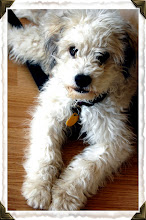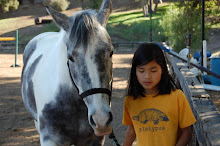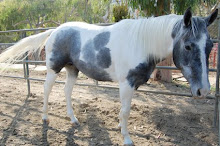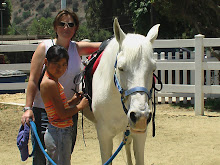As a parent, a writer, an educator, and an activist for positive social change, I’ve been through many stages of learning. First, you try to create or force a certain outcome, then you realize that you might need to learn more about the situation or person, and then you observe and become better at communicating what you need, without creating conflict or resistance. It is a kind of dance, a confluence of forces, communicating and listening and guiding, offering advice, setting limits, and learning to step back and allowing for what is possible.
The longer I live and am able to observe human nature and political and societal change, the more I believe in what the great Gloria Steinem said, way back in the 1970s: “The personal is political.” If we had all come out to our friends, family members, business associates, neighbors, employees, viewers, fans, readers, consumers, clients, and the gardener, then perhaps the temptation to take away our marriages and limit our civil rights would have been weakened. When my partner (formerly spouse) and I volunteered on Election Day to help pass out reminder cards at the polls, letting folks know that we appreciated their ‘No’ vote on Prop. 8, I was astounded by both the friendly, supportive allies who were outraged on our behalf that the issue was even on the ballot, and by the outright hostility and disgust of those who were planning to vote the other way.
But what struck me the most was the look of furtiveness and shame, and yes, even indecision, on the faces of those voters who passed by us and had to look us in the eye before anonymously voting to discriminate against us. One big, burly guy with a pronounced pot belly and a gruff manner stopped to talk with us for a minute. We were being scrupulously careful to stay at least 100 yards away from the polling place, and to avoid any kind of discussion that might be contentious, argumentative, or unfriendly. This guy seemed to be looking for a fight. After a few loud, incoherent sentences, which Laura tried to respond to, I asked her to please stop talking with him and to step away and come closer to me.
The big guy suddenly looked at us, two not very tall women in our forties, with short hair, no make-up, flat shoes, one with a colorful tie-dyed Capitola sweatshirt on, the other wearing a black Carhart jacket, and hesitated for a second. He saw that we were not going to engage with him, that we didn’t want to fight or argue. We were just there, a committed, loyal, monogamous couple for almost eighteen years, trying our best to remind people in our community that we exist, that we are not going away, and that we care deeply about holding onto our rights, as a couple, as a family, and as tax-paying, law-abiding citizens. He didn’t know all of this, of course, nor did he know that we have an eleven year-old daughter, two cats, and the same sort of pleasures and problems that most “married” people enjoy and deal with on a daily basis. Maybe gruff guy didn’t even realize that we were together. But something shifted in his brain, and he tried to approach us again, this time less threateningly, though still lacking in most social skills.
"I know about you,” he said, pointing a finger at us. Oh, here we go, I thought. Another tirade about abominations and how we have no right to be here at all, as if our very existence was somehow a threat and an insult to decent Americans, and even Jesus and God hated us, and would want nothing more than to see us dead and rotting in Hell. But I was wrong. Gruff guy didn’t go off on a tirade. He said, simply, “I have a brother in West Hollywood. I know about you. I have a brother.” A light had suddenly gone on, as he looked at us, and he remembered that he had someone “like us” in his own family. He walked towards the polling place, and Laura told me not to worry, he wasn’t trying to hassle us at all. I wasn’t so ready to agree with her. His body language seemed so much like all the others, during that long, windy day up on a hill in northern Glendale, who had approached us with aggression and hostility. I was tired and worn out from facing all the negativity, and not willing to give the big guy the benefit of the doubt.
“He’s just letting us know that he understands what we are and that his sinful brother is one of us, and that we’re all going to Hell, etc, etc.” Laura shook her head and smiled. She was determined, as usual, to win the argument.
“No, I don’t think so. He didn’t mean to be aggressive, or challenging, he just wanted to talk.”
Yeah, right. I shook my head and turned back to the task at hand. Guys like that, big gut, big truck, they’re all the same, I thought to myself. When I was younger, those were the guys who yelled “Dyke!” out of the windows of their trucks as they flew past. Those were the guys who came from hours away to the Castro district on Saturday night, just looking for someone to gay bash. My friends and I had all been physically and verbally attacked way too many times by guys just like that. Laura might have lived a charmed life, never being hassled or reviled or evicted or fired or told that she was disgusting just for being herself, but I hadn’t. My mind closed against the surge of memories, and my chest felt tight and cold. Yes, guys like that are all the same.
A few more voters passed by, some on their way into the polls, others leaving. Two young women approached, looked at our ‘No on Prop. 8’ cards, and smiled smugly. “Actually, we’re ‘Yes on 8’,” one of them said, and the other one giggled as they brushed past us. An elderly woman got out of her car and walked slowly towards the sports office that held the voting machines. She looked at Laura’s colorful tie-dye sweatshirt and the card in her outstretched hand, and as Laura flashed her huge smile and asked if she would “please vote to protect our rights…” the woman suddenly understood what was going on and shuddered with repulsion and disgust. “Noooo….!” She hopped quickly sideways to avoid coming too close to either of us, and her face crumpled in horror. She looked as if she had just missed stepping in a steaming pile of shit, and was desperate to put distance between herself and the offensive stuff. Us.
Poor Laura. She seemed crushed. Her unfailing optimism and friendliness was being put to the test. “That woman was physically repulsed by me. I don’t think I’ve ever been treated that badly, by anyone. It’s horrible.” She looked as if she might cry, but didn’t. Too much work still to be done. Time passed, more people went by, some taking cards, others refusing. Suddenly, up walked gruff guy. He’d finished voting but seemed to need to tell us something important. He was waving his hands in the air to get our attention, but not coming too close, as if he might startle us, like deer in the woods. “What now?” I thought, but Laura turned and smiled at him.
“Yes?” He looked at us and spoke, quietly enough not to be overheard by passersby, but clearly enough for us to understand.
“I voted that way.” He pointed at our stack of ‘No on 8’ cards. “I have a brother, in West Hollywood. I know what you are. I know…” His voice trailed off in the wind as he disappeared behind a row of parked SUVs, headed for his truck. Laura didn’t waste a second.
“I told you so!” She jumped up and down, pointing a finger at me and laughing, delirious with joy at having been right. I tried to hide my smile, glaring at her with the determined look of one who will not easily concede defeat. But I couldn’t help laughing myself. Laura was right and I was wrong. One big guy in a truck had just changed his vote, because he saw a couple of middle-aged dykes standing at the polling place, handing out cards, not apologizing for who we are, not trying to fit in, or change, or make ourselves invisible, not willing to accept the harsh judgments of others, just being out and being ourselves. Just like his brother, in West Hollywood.
*****
Thank you to every single one of you in California who voted to protect our rights, and came up to support us during and after this election. We need you now, more than ever. We got Obama -- now it’s time for true equality!
Please remember to reach out to your friends, family, neighbors, and community during the holidays. Many are alone, hungry, cold, and demoralized.
As Madonna likes to say, “I’m not religious, but I feel such love….”
SHALOM/PEACE,
Rachel Pray
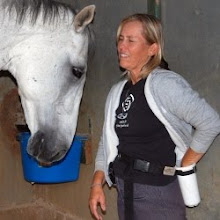.jpg)
